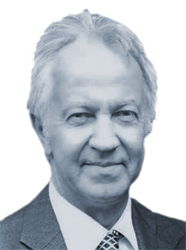 Happy birthday, Russian football! The federation’s centenary party saw a triumvirate of presidents lead the celebrations: state President Dmitri Medevedev, FIFA president Sepp Blatter and UEFA president Michel Platini.
Happy birthday, Russian football! The federation’s centenary party saw a triumvirate of presidents lead the celebrations: state President Dmitri Medevedev, FIFA president Sepp Blatter and UEFA president Michel Platini.
The most powerful man present, however, was ‘only’ a prime minister. Still, Vladimir Putin is a case apart and his command one of the reasons Blatter was moved to comment that Russia was further ahead already in preparations for the 2018 World Cup than Brazil for 2014.
That gesture of light-hearted good manners backfired to some extent when the comment was picked up in Brazil where FIFA secretary-general Jerome Valcke was trying to put an encouraging positive spin on his first visit there of the year.
But all those who have witnessed the committed 24/7 manner in which the Russian authorities and their commercial partners are preparing for the Winter Olympics down south in Sochi will have little doubt about the energy and ruthless commitment to being ready on time.
Initially Blatter said: “I can tell you that we are far, far advanced (in Russia). Even, I would say, we have more problems actually in Brazil than here.” Later he added the diplomatic rider that “we are convinced Brazil will organise a fantastic World Cup on schedule.”
Russia won 2018 because the country – from Putin right on down – threw more resources at the process than all the other bidders put together. In terms of politics, power levers, public relations and business intelligence they got it right. They had powerful support from Germany and the German federation whose vote and influence within the FIFA executive was represented by Franz Beckenbauer.
Coincidentally, German company Siemens won the contract to build Russia’s new high-speed, inter-city trains. Cordial relations could be cemented still further if the Russian energy giant Gazprom follows through recent talks and becomes one of the major sponsors of Bayern Munich (Coincidentally also, of course, the club of which Beckenbauer is honorary president).
Recently Ukraine’s football supreme Grigoriy Surkis suggested that the fact that his country and neighbouring Poland would be hosting the 2012 finals of the European Championship had helped open the minds of FIFA exco voters to big-event staging in eastern Europe. Officials in the Russian bid take the opposite view: they believe they won the 2018 World Cup bid despite events in Ukraine (in particular) and Poland.
The importance of this ‘decade of sport’ for Russia was underlined to this writer personally earlier this month by Deputy Prime Minister Dmitri Kozak. The Winter Olympics, a first Formula One grand prix – also in Sochi – then the World Cup, plus various other sporting championships underline the modern version of ‘ping-pong diplomacy.’
Putin has repeated his promise of easy-visa entry for World Cup ticket holders. He has even sought the sympathy of Russian fans by talking about providing free flights for all those who want to support the national team at Euro 2012.
Likely to regain the presidency in March, Putin added: “I am counting on the fact that the leaders of fan clubs and all our football supporters in general will involve themselves in the World Cup preparations to help make this event a genuine festival for all lovers of this wonderful sport.”
Platini, trumping even Blatter’s words, has suggested that Russia have what it takes to win the 2018 World Cup, never mind ‘just’ stage it. That prophecy merely adds to the pressure on Dick Advocaat’s national team at Euro 2012.
The Frenchman advised his Russian hosts: “You need to focus on your young players – on the 18-to-20-year-olds. These are the ones who will play a key role as senior players at your World Cup.”
By Keir Radnedge






